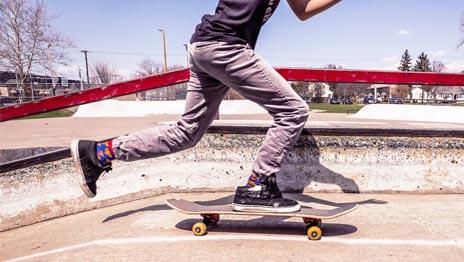
Researchers from the College of Arts are seeking participants in a study on resilience of teens who are marginalised or at-risk of poor outcomes (e.g., education, delinquency) in western Melbourne.
This research will contribute to the growing international data about at-risk and disadvantaged youth and pathways to positive outcomes. This project will also provide important information about local communities’ most vulnerable young people.
About the project
Resilience is the process of achieving positive outcomes in the face of significant adversity.
Positives outcomes could include educational expectations and aspirations and psychological wellbeing.
An essential aim of this study is to be culturally sensitive to diverse populations in this region of Australia.
Several aspects of resilience will be examined including:
- peer support
- social skills
- parent/caregiver support
- cultural identification
- response to stigma
- and adult mentors.
Outcomes will include educational expectations and aspirations, and psychological wellbeing.
This project has approval to proceed from the Department of Education and Early Childhood Development (DEECD) and the Victoria University Human Research Ethics Committee.
The study has commenced and will run until September 2015.
Resilience in western Melbourne youth flier.
Our researchers
Our researchers conducting this research are both from the College of Arts at Victoria University. They are:
- Dr Laurie Chapin, who is a Lecturer in Psychology with a special interest in researching risk behaviours and resilience of children and adolescents from various populations.
- Dr Carolyn Deans, who is an experienced clinical psychologist and senior academic. She is also the Director of VU's Psychology Clinic.
Eligibility & consent
We're approaching schools and community services to help recruit young people for our study.
We're looking for more than 130 participants aged from 14-19 years of age (Year 9-12). Participants will go into a draw to win a voucher prize.
For youths 17 years of age and under we require parental/guardian consent to participate.
Youth 18 years and older will be encouraged to gain parent/guardian consent but it will not be mandatory.
All participants will also sign a youth consent form.
Information for schools
Schools will:
- help to determine a time and place for researchers to explain the project to adolescents
- be given the option to arranging for researchers to meet with youth during class periods, during lunchtime, or during free periods
- expect teachers/staff to be present to supervise
- not need to assist
- be asked not to influence potential participants.
Researchers will:
- be present during the sessions
- provide potential participants with information packets and consent forms to take home
- be available for questions immediately.
Contact us to participate
For those schools or individuals who are interested in participating, our contact details are:
- Dr Laurie Chapin
Phone: +61 3 9919 2355
Email: [email protected]. - Dr Carolyn Deans
Phone: +61 3 9919 2334
Email: [email protected].
